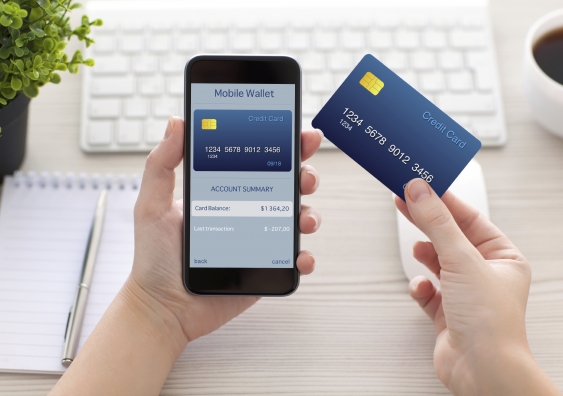Digital payments are coming – and life will be different
Cash usage has been in decline for years and should accelerate further with the real-time payments system the Reserve Bank has in the pipeline, writes Ross Buckley.
Cash usage has been in decline for years and should accelerate further with the real-time payments system the Reserve Bank has in the pipeline, writes Ross Buckley.

OPINION: The future of payments is rushing towards us. Australia has the world's highest proportion of contactless payments (payWave) and one of the highest proportions of smartphone ownership. More than 60 per cent of our face-to-face credit card transactions are now contactless.
Apple and Android smartphones today have contactless ability. Soon we will select a credit card on our phone and wave the phone near the reader, while the actual card sits at home. Moreover, we will be ordering our coffee or lunch from a phone app, before walking to the store, and paying this way when we get there. The lovely grandmother who types my dictation lives in Kansas; and orders and pays for her lunch and Starbucks coffee this way today. She even uses her phone to pay the neighbour who mows her lawn. Good coffee and our phone are two of life's essentials for many of us. The latter will soon eliminate queuing for the former – and we won't have to drink Starbucks to do it.
Cash usage has been in decline for years, and should accelerate further with the real-time payments system the Reserve Bank will have up and running in two years.
It would be a brave person who'd back cards against phones. The phone is the one item we all carry. The convenience of not having to also carry cash and credit cards will win the day.
Smart governments would push digital payments, because as the use of cash declines, the base for income tax and GST grows.
Denmark has begun this journey. From next year some retailers such as restaurants and clothing stores will no longer have to accept cash. Essential services will have to take cash, but the obligation to do so will stop being universal. This raises concerns about the impact on the poor, to which the answer is universal financial inclusion. It is not difficult, and strongly in the government's interests, for it to require all Australians be given access to digital financial services.
Banks still dominate payments here but digital disrupters are far more active elsewhere. These small, nimble companies, often with a telecommunications background, develop technology-enabled payments and financial services and take market share off the banks. The banks' big advantage should be trust. Even cash is only valuable because people trust it.
We are unusual – our banks sailed through the global financial crisis and retained trust. Yet most Americans trust Google or Facebook more than their own bank, and therefore many are happy to keep their money with Google or Facebook. Banks in the United States lost massive amounts of public confidence by helping to cause the GFC in 2008, and are yet to earn it back.
The use of smartphones as contactless credit cards is growing in the US, but the market opportunity was there because facilities such as payWave are far less common, and so the phone offers convenience a credit card doesn't. In Australia this opportunity is smaller, and our lower merchant fees leave less space for Apple, for instance, to take its cut, estimated at about 15¢ in every $100.
Nonetheless, it would be a brave person here who'd back cards against phones. The phone is the one item we all carry. The convenience of not having to also carry cash and credit cards will win the day. Payments for all daily purchases, including public transport and parking, will be from one's phone. The only question is when, not if.
The payments revolution to date has been driven by our banks and customer convenience. The next phase will be driven by new market entrants working out cheaper ways to provide these services, and returning some of those savings to customers and merchants. Governments should support this because $100 bills comprise 45 per cent in value of issued currency in Australia. Some are under mattresses to help people meet the asset tests for the age pension. But most are used in payments. So how often do you handle a $100 bill?
It is not people like you or me using most $100 bills, it is people seeking to avoid liability for tax or crime. This is why governments should support the digital revolution. They need to amend our overly burdensome regulatory regime, which currently dissuades many digital start-ups. The question of how to lighten this regulation sufficiently will be the subject of an upcoming two-day international workshop in Sydney hosted by the Centre for International Finance and Regulation. After this, all that remains is for governments to grasp the full potential of digital payments.
Ross P. Buckley is CIFR King and Wood Mallesons Professor of International Finance Law at UNSW.
This opinion piece was first published in The Canberra Times.